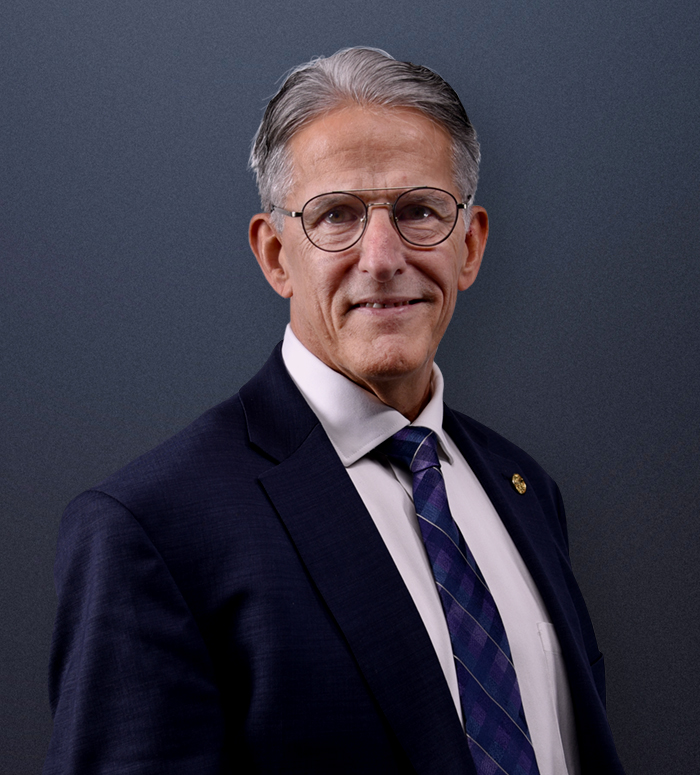Book One – Shared Services Canada Ministerial Transition 2019
Table of contents
- Shared Services Canada Overview
- Shared Services Canada: An Introduction
- The path forward: SSC 3.0 an Enterprise Approach
- Key Stakeholders and Industry Contacts
- Managing Effective Working Relationships with Industry Stakeholders
- Government‑wide Stakeholder Management
- Annex A: Key Vendors and Industry Associations
- Industry Associations
- Organizational Chart
- Biographies
- Communications Analysis
Shared Services Canada Overview
Shared Services Canada: An Introduction
Canadians expect to be able to use the latest digital technology to receive the services they need, when and where they need them on any device—whether they are filing their taxes, applying for a passport or getting the latest recall information. To meet these expectations, federal employees need the right tools to deliver the essential services Canadians rely on, and Shared Services Canada (SSC) plays a critical role in making that happen.
SSC is responsible for providing shared services (procurement, service management and/or service delivery) related to email, data centres, networks, and end-user devices (e.g., smartphones). SSC works closely with departments to ensure their software and applications can perform on the government infrastructure to meet the expectations of Canadians. Currently, the Department has approximately 7,400 employees who serve over 377,000 federal employees, including Royal Canadian Mounted Police officers as well as Canadian Forces military personnel.
Several other departments also play an important role in government information management and technology.
| Email, Data Centres, and Networks | End-User Devices (Hardware) | Applications (Software) | |
|---|---|---|---|
| Service Management and Delivery | Shared Services Canada | Partner departments/agencies | Partner departments/agencies |
| Procurement | Shared Services Canada | Shared Services Canada | Public Services and Procurement Canada |
| Policy and Standard Setting | Treasury Board of Canada Secretariat | Treasury Board of Canada Secretariat | Treasury Board of Canada Secretariat |
Text version
- Shared Serviced Canada is responsible for Service Management and Delivery, and Procurement of Email, Data Centres, and Networks, as well as the Procurement of End-User Devices (Hardware).
- Partner Departments/Agencies are responsible for the Service Management and Delivery of End-User Devices (Hardware) and Applications (Software).
- Public Services and Procurement Canada is responsible for the Procurement of Applications (Software).
- Treasury Board of Canada Secretariat is responsible for the Policy and Standard Setting of Email, Data Centres, and Networks, End-User Devices (Hardware), and Applications (Software).
The path forward: SSC 3.0 an Enterprise Approach
To meet Canadians expectations about receiving digital services from the federal government, SSC published a vision entitled, SSC 3.0. The vision responds to the overly complex nature of government information management and concerns about outdated tools and disruptions of programs and services because of information technology. It outlines a whole of government approach to digital services that will improve the user experience and the reliability of information technology by consolidating, modernizing, and standardizing the Government of Canada’s approach to information management and technology.
SSC 3.0 takes action in three areas to better meet Canadians’ expectations.
Establishing a reliable, modern, secure and accessible network
There are approximately 50 Government of Canada networks throughout the country—many of which are aging and not ready for cloud, video and voice. These networks are complex, labour intensive, costly to maintain, and lack the capacity to scale and deliver the services Canadians need. Some lack advanced security standards for protection against cyber threats.
With SSC 3.0, the Government of Canada has the opportunity to transition away from single departmental networks to modern whole‑of‑government or enterprise networks. These networks will be accessible anytime, anywhere and by anyone. They will be built with accessibility in mind, while accommodating and supporting continual improvement and an increasing diversity of government programs and services.
Supporting a digitally‑enabled Public Service
Today, workplace collaboration tools used by federal employees vary from one department to the next, with limited overarching standardization or integration. SSC 3.0 will support a government wide Enterprise Digital Workplace Platform. This means federal public servants will have access to devices ranging from mobile to traditional workstations from anywhere.
The platform will have built in security, single sign-on, seamless remote access and the full suite of Microsoft Office 365 cloud based software. Employees will be able to work in a more connected way using integrated email, instant messaging, enterprise wide social networks, videoconferencing, web applications, digital collaboration tools and more.
Providing modern and efficient infrastructure solutions
Most of the federal government’s roughly 12 000 applications reside in aging data centres, which are more at risk of service disruptions and failures. At the same time, there are departmental applications and data that have not been maintained, with some based on software that was not designed for today’s digital realities. These applications need to be rebuilt before they can be moved to the cloud and state of the art enterprise data centres.
To date, SSC has worked with its customers to close 208 legacy data centres. The Department will risk manage with customers to prioritize applications and work toward the best solutions for their needs. The objective is to ensure hardware and software systems are robust, secure, and keep pace with changing technology.
Key Stakeholders and Industry Contacts
Purpose
Shared Service Canada works closely with the information and communication technology sector to deliver services to Canadians. The sector is comprised of vendors, industry associations and organizations that provide key enabling technologies, advice and support to SSC’s services.
The information and communication technology community that works with SSC is comprised of large multinational firms, and small and medium enterprises. These interactions are influenced by government policies that support key socio-economic areas such as greening government, working with Indigenous companies, trying new and innovative technology that is emerging in the sector, and collaborating with businesses on technologies that support accessibility.
SSC is a significant buyer of information technology goods and services, recording $1.82 billion in total information technology expenditures in the 2018-2019 fiscal year.
Additionally, post secondary, college and technical schools with programs in information communication technology are of interest to the Department as it attempts to recruit and retain new talent to digitally enable government. Of note, most post secondary institutions with information communication technology programs are also experiencing a surge in interest from private sector vendors, as skills in this area are at a premium. SSC is working to build partnerships with institutions to channel new graduates into the Department and retain talent.
A description of key vendors and industry associations and their relevance to SSC is included as Annex A.
Managing Effective Working Relationships with Industry Stakeholders
Vendor interactions are managed through the procurement function in the Department, which is housed in the Corporate Services branch. Teams of information technology procurement specialists work with vendors in a collaborative, open and consistent way. The information communication technology sector helps to shape SSC services, and there is much to learn from the vendor community, which is why vendor relations is a key component to how the Department interacts with the sector. In addition, the information technology procurement specialists within SSC support senior leadership in their engagements with vendors and associations that express interest in where SSC is driving the information communication technology focus of the Government of Canada. The Department undertakes this work by:
- Providing dedicated vendor engagement that centrally coordinates responses to questions, concerns and requests for meetings from the information communication technology sector to meet with Shared Services Canada’s leadership and engage on their respective interests;
- Administering procurement processes that focus on collaboration with the vendor community throughout the purchasing cycle while actively moving to engage vendors early;
- Hosting issue‑specific discussions that SSC calls roundtables, and other consultative industry sub‑committees to promote open and collaborative approaches to procurement; and
- Organizing discussions between SSC senior leaders and vendors within key market segments.
Government‑wide Stakeholder Management
The Department takes an active role in including other Government of Canada departments of interest in managing information communication technology relationships such as the Treasury Board of Canada Secretariat and Public Services and Procurement Canada. Both of these organizations have central roles to play in how the Government of Canada manages relationships with the vendor community and particularly in the Information Communication Technology sector. As such, SSC administers a formal committee that brings together representatives from other government departments and industry representatives from the information communication technology sector.
The Architecture Framework Advisory Committee (co‑chaired by SSC and the Treasury Board of Canada Secretariat) provides opportunities for vendors to demonstrate best practices, engage in policy discussions, and provide feedback on information technology architecture plans in a collaborative environment; and SSC actively uses this committee to engage with industry while building relationships and sharing lessons learned, best practices, challenges and priorities of the Department.
Annex A: Key Vendors and Industry Associations
Key Vendors
The following list of key vendors for SSC is arranged in order of largest to smallest total business volume from January 2015 to October 2019, followed by a short description of the relationship with the Department.
- Bell Canada Enterprises Inc. ($2.5 billion total business volume)
- IBM Canada Ltd. ($2.1 billion total business volume)
- Microsoft Canada Inc. ($1.5 billion total business volume)
- Telus Corporation ($984.9 million total business volume)
- Rogers Communications Inc. ($457.3 million total business volume)
- TeraMach Technologies Inc. ($270.2 million total business volume)
- Zayo Canada Inc. ($210.7 million total business volume)
- Inmarsat Solutions Inc. ($171.5 million total business volume)
- Computer Associates Technologies ($161.1 million total business volume)
- Telesat Canada ($154.1 million total business volume)
Bell Canada Enterprises Inc. is Canada’s largest communications company, providing a comprehensive and innovative suite of broadband communications and content services. Bell is leading the Email Transformation Initiative for SSC.
IBM manufactures and markets computer hardware and software and offers infrastructure, hosting and consulting services in areas ranging from mainframe computers to nanotechnology for SSC.
Microsoft is a worldwide leader in software, services and solutions. It provides SSC with licences for Microsoft suites, Microsoft servers, maintenance and support for software and technical support, as well as the ability to provide email as a service.
Telus Corporation is a Canadian telecommunications company that provides a wide range of telecommunications products and services for SSC.
Rogers Communications Inc. is a Canadian telecommunications company that provides a wide range of telecommunications products and services for SSC.
TeraMach Technologies Inc. is a Canadian technology solution provider with considerable experience in the public sector. They provide professional services that relate to advising (assessment, strategy and cost‑benefit analysis) on various topics such as storage, backup, virtualization, network, security, cloud strategy, and cloud readiness.
The company provides communications infrastructure services, including fiber and bandwidth connectivity, collocation, and cloud infrastructure. Zayo’s primary customer segments include data centres, wireless carriers, national carriers, Internet service providers, enterprises, and government agencies, some of which it provides to SSC.
Inmarsat Solutions Inc. operates a global communications satellite system. The company's satellites provide worldwide voice and high-speed data services. For SSC, it provides mobile satellite services, such as mission-critical voice and data communication services on land, at sea and in the air globally to partner organizations.
Computer Associates Technologies (a subsidiary of Broadcom) provides server operating system and utility software, as well as information technology and telecommunications consultants for SSC.
Telesat Canada operates as a satellite operator. The company offers worldwide satellite‑delivered communications solutions to broadcast, telecommunications, corporate, and government customers, and provides technical consultancy services for SSC.
Industry Associations
SSC frequently consults the following information communication technology sector stakeholder associations through the following formal consultation bodies:
The Architecture Framework Advisory Committee
The Architecture Framework Advisory Committee supports SSC’s mandate and the Government of Canada’s digital transformation initiatives by serving as a forum for public-private sector consultation on enterprise architecture. SSC reviews business approaches through a strategic lens with industry subject matter experts to develop or refine proposed directions for mid to long-term planning (e.g., three to ten year planning cycles).
Issue‑Specific Roundtables
The Issue‑Specific Roundtable series focuses on SSC issue-specific topics in order to optimize short‑term business planning. Each meeting explores business approaches through a tactical lens and gathers insight from senior‑level industry thought leaders and subject matter experts. This facilitates the development, refinement and validation of proposed directions for short‑term planning.
Other Key Associations
In addition to those noted above, these associations have face‑to‑face meetings with SSC senior officials on an ongoing basis to discuss issues of interest to their members such as the implementation of a digital economy, cloud first policies, enabling technologies and innovation, and security. The organizations and their brief descriptions are outlined below.
- Information Technology Association of Canada
- Canadian Information Technology Providers Association
- Canadian Business Information Technology Network
- Council of Canadian Innovators
- Canada’s Advanced Research and Innovation Network
The Information Technology Association of Canada is a membership-driven national industry association that represents the information technology industry.
The Canadian Information Technology Providers Association is an affiliation of Canadian‑owned vendor‑authorized solution providers that deliver information technology solutions to the Government of Canada.
The Canadian Business Information Technology Network is a member driven industry association for small and medium enterprises on federal government procurement initiatives. It is an association that consists of companies that provide information technology resources and solutions to the Government of Canada.
The Council of Canadian Innovators is non-profit organization focused on helping high growth Canadian technology firms to scale up globally. The council’s mandate is to optimize the growth of Canada’s innovation based sector by ensuring Canadian technology and public policy leaders are working together to improve Canada’s innovation outputs.
Canada’s Advanced Research and Innovation Network is a non profit corporation that designs and delivers digital infrastructure, and drives its adoption for Canada’s research, education and innovation communities.
Supporting Social and Economic Policy Programs
SSC supports Government of Canada socio‑economic priorities through initiatives, including:
- Accessibility;
- Working with Indigenous Peoples;
- Women in Science, Technology, Engineering and Mathematics;
- Gender-Based Analysis Plus; and
- Greening government
Accessibility
SSC plays a key role supporting public servants who require accessible technology through the Accessibility, Accommodations and Adaptive Computer Technology program. This program assists Public Service employees with disabilities, injuries or ergonomic requirements with their integration into the workplace, providing access to systems, programs, information, computers and other resources. As outlined in the Public Service Accessibility Strategy, the Government of Canada intends to hire at least 5,000 persons with disabilities by 2025. Budget 2019 identified funds for the Accessibility, Accommodations and Adaptive Computer Technology program in order to hire more staff and provide services that support the increased demand for accessible technology over the next five years.
SSC raises awareness about the International Day for Persons with Disability annually, while supporting the government wide celebrations organized by Public Services and Procurement Canada and Employment and Social Development Canada. This year, preparations are being made to announce upcoming consultations within SSC and with partner departments for SSC’s Accessibility Plan.
In addition, SSC is working with key partners like the Treasury Board of Canada Secretariat on a lending library of assistive technology, which will provide better support to public servants with disabilities who are engaged on a short term basis (i.e. students). SSC will publish its first departmental Accessibility Plan in 2019-2020 in keeping with the Accessible Canada Act.
Working with Indigenous Peoples
SSC is evolving how it considers and works toward including Indigenous issues in providing information technology services to the Government of Canada. As the Indigenous information and communications technology sector grows, it presents SSC with expanded opportunities to partner with and learn from Indigenous communities and businesses.
From an employment perspective, the Department is actively seeking ways to diversify and include more Indigenous representation in its workforce, and as of October 2019, there were194 employees that self-identified as Indigenous, three of which are at the executive level. SSC has undertaken a number of initiatives to recruit, retain and support Indigenous employees, including, among others, encouraging recruitment through the Indigenous Student Employment Opportunity Program, appointing Co-Champions for Indigenous Peoples, and engaging Indigenous employees through the departmental Indigenous Advisory Committee.
SSC is an active participant in the Government of Canada’s Procurement Strategy for Aboriginal Business and has consistently surpassed the Strategy’s performance objectives since 2013. In 2018, 186 contracts were awarded to Indigenous Businesses, for a total value of approximately $41 million.
The Department continues to consider new ways to include Indigenous participation in procurement and in our workforce.
Women in Science, Technology, Engineering and Mathematics
Women continue to be underrepresented in the fields of science, technology, engineering and mathematics in both industry and government. As a department heavily reliant on computer science and information technology professionals, SSC is committed to the development, recruitment and retention of women in these roles. To this end, the Department has been implementing a variety of initiatives and is developing a strategy for women in science, technology, engineering and mathematics. As the Department with the highest concentration of employees in the Computer Systems occupational group, SSC is also working across government and with the private sector to leverage best practices and position itself as a leader in this area.
Gender-Based Analysis Plus
Gender-Based Analysis Plus is a mandatory assessment, for all new programs and policies, which examines different impacts on women, men and gender-diverse people, to ensure equitable treatment and opportunities for all. SSC uses Gender-Based Analysis Plus to guide procurement activities related to the Government of Canada’s information technology infrastructure, as well as to ensure that all staffing actions take diversity into consideration. With a dedicated Gender-Based Analysis Plus responsibility centre, SSC will soon be developing an action plan and a formal Gender-Based Analysis Plus policy.
Greening Government
SSC is contributing to the targets identified in both the Federal Sustainable Development Strategy and the Greening Government Strategy through the inclusion of environmental considerations in data centre energy consumption, fleet management, procurement processes, and employee mobilization. This includes providing environmentally preferable options in the procurement services offered to customer departments where feasible, among other activities.
At the departmental level, SSC is supporting the greening of the procurement system, including a deployment of an electronic Procure-to-Pay system, adopting electronic signatures, and accepting electronic bids. SSC is also working to implement initiatives to reduce plastic and Styrofoam packaging throughout the Department and within its procurement of electronic goods, and is collaborating in an Innovative Solution Challenge to reduce electric and electrical equipment waste.
Diversity
SSC is committed to strengthening diversity through a number of initiatives, including appointing departmental champions for all four Employment Equity designated groups (Indigenous Peoples, Visible Minorities, Persons with Disabilities and Women). Additionally, SSC participates in Employment Equity recruiting activities and in other targeted initiatives such as increasing awareness of efforts by various visible minority groups (e.g., presentation by Federal Black Employee Caucus to SSC's Senior Management Board). There are also diversity activities that go beyond the categories outlined within Employment Equity, such as acquiring a SSC Champion for the Lesbian, Gay, Bisexual, Transgender, Queer, Two‑Spirited (LGBTQ2) community, and working with interdepartmental colleagues to incorporate gender inclusive language and options.
Workforce availability is the number of people that could be employed as a percentage of the total Canadian workforce. That means, within the group of available persons for hire, the percentage of those people that self‑identify in one of the designated groups are recorded as workforce availability statistics. Federal organizations, including SSC, compare the makeup of its employees to the workforce availability percentages. As of October 2019, women are the only designated group with a representation and availability gap (of -3.3% representing 222 women). SSC's workforce currently exceeds the workforce availability metric within the other 3 designated groups.
Organizational Chart
Biographies
Paul Glover
President

Paul Glover was appointed to the role of President of SSC in January 2019.
He also served as the President of the Canadian Food Inspection Agency from October 2016 to January 2019.
Paul was the Associate Deputy Minister of Health Canada from July 2013 to October 2016.
Prior to his appointment as Associate Deputy Minister of Health Canada, he was Assistant Deputy Minister of both the Health Products and Food Branch (January 2011 to July 2013), and the Healthy Environments and Consumer Safety Branch (September 2008 to January 2011). Prior to that, he worked on a wide range of social policy issues in the Privy Council Office's Operations Secretariat.
Paul began his career at Health Canada in 1986, in the informatics area. He then moved on to health systems management assuming jobs with progressively more responsibility. He eventually accepted a position of Director General to a number of business units, including Indigenous and Inuit health programs, the Non-Insured Health Benefits Program, and the Safe Environments Program.
Over the years Paul has served on numerous governing bodies, including the Board of Directors of the Queensway Carleton Hospital, the Mental Health Commission of Canada, Canada Health Infoway, the Advisory Board for the Canadian Institutes of Health Research, and the Queen's University Board of Directors for the Centre for Water and the Environment. He has been a member of the National Academies of Science in the United States and the International Joint Commission.
Paul served as the Assistant Deputy Minister Champion for the Community of Federal Regulators and currently serves as the Deputy Minister Champion for Brock University.
Paul earned his Master's in Business Administration from Queen’s University.
Sarah Paquet
Executive Vice-President

In February 2018, Sarah Paquet was appointed to the position of Executive Vice‑President at SSC. As the first Executive Vice‑President of SSC, she is providing leadership as the Department modernizes the Government of Canada information technology infrastructure, thereby, enabling digital services—the electronic delivery of information across multiple platforms and devices such as Web or mobile—to Canadians.
Prior to that, Sarah served as the Senior Assistant Deputy Minister of Strategy at SSC. While in this position, she led the development of the Government of Canada renewed Information Technology Infrastructure Transformation Plan, which resulted in new investments in SSC.
She was the Assistant Deputy Minister of Public Services and Procurement Canada's Integrated Services branch from 2011 to 2017, where she played a key role in the department's service strategy, helping to ingrain client service excellence across the department. She was also responsible for enabling major Government of Canada information‑technology‑enabled business solutions.
Sarah began her federal Public Service career in 1997 at the Department of Justice where she held various positions such as legal services (Counsel) to Health Canada. Subsequently, she became Executive Director and General Counsel for the Canadian Food Inspection Agency, and Executive Director and Senior General Counsel for Public Services and Procurement Canada.
As the Deputy Minister Champion of the University of Ottawa, Sarah is focussing on student mental health and recruitment while strengthening the student's relationship with the Government of Canada. She is also a strong advocate for women in science, technology, engineering and mathematics.
Sarah attended the University of Ottawa, earning her Civil Law degree in 1993 and her Common Law degree in 2001.
Denis Bombardier
Chief Financial Officer,
Chief Financial Officer Branch

Denis Bombardier was appointed to the role of Chief Financial Officer of SSC in 2018.
He also served as the Chief Financial Officer for Correctional Service Canada from 2016 to 2018 before joining the Department.
From 1998 to 2016, he has occupied a variety of increasingly demanding executive, positions, including but not limited to, Director General of Financial Operations and Material Management at Fisheries and Oceans Canada, and Director General of Resource Management at Correctional Service Canada.
Denis joined the federal Public Service in 1998 after having occupied several different positions in the private sector.
He holds a Bachelor's degree from McGill University and a Chartered Professional Accountant, Certified General Accountant professional accounting designation.
Stéphane Cousineau
Senior Assistant Deputy Minister,
Corporate Services

Stéphane Cousineau was appointed to the role of Senior Assistant Deputy Minister of Corporate Services at SSC in May 2018.
Prior to this appointment, he was the Assistant Deputy Minister of Corporate Management Services and Chief Financial Officer of the Financial Transactions and Reports Analysis Centre of Canada.
He has 28 years of experience in the federal government; 18 years of which have been at the executive level. He has served as Director General of the Project Management Bureau as well as Chief Information Officer at Passport Canada, Elections Canada and the Department of Foreign Affairs and International Trade.
Stéphane also contributes to a number of broader Government of Canada initiatives, including mental health and wellness. He is the Co-Champion of the Workplace Charitable Campaign at SSC for 2019-2020. This year, he also served as the Co-Chair of the Assistant Deputy Minister Learning Advisory Committee.
Stéphane teaches project leadership on an annual basis at Queen’s University.
He holds a Master's Degree in Business Administration from Queen’s University.
Raj Thuppal
Senior Assistant Deputy Minister,
Networks Security and Digital Services

Raj Thuppal is the Senior Assistant Deputy Minister of Networks, Security and Digital Services at SSC.
He also served as Assistant Deputy Minister of Cyber and Information Technology Security at SSC from 2015 to 2017.
Raj joined the Public Service in 2003, working in various management roles at the Department of National Defence and the Canada Revenue Agency until February 2013 when he joined SSC. Prior to this, he held various engineering roles in the private sector at Marconi/FORE Systems in Ottawa, Ontario.
Raj holds a Master's degree in Electrical/Computer Engineering from Memorial University of Newfoundland and a Bachelor's degree in Electronics and Communications Engineering from India.
Patrice Nadeau
Associate Assistant Deputy Minister,
Networks, Security and Digital Services

Patrice Nadeau is Associate Assistant Deputy Minister of the Networks, Security and Digital Services branch at SSC.
Prior to assuming his current role, he was Director General of the Data Networks directorate at SSC. He joined SSC when it was created in 2011.
Previous to that, he worked at Public Works and Government Services Canada from 1996 to 2011. During this time, he held various information technology management positions, including Account Manager for the Government Telecommunications and Informatics Services and the Delivery Executive of the Telecommunications and Information Technology Security Service Delivery Division.
Patrice began his career in the private sector with Matrox in Dorval, Quebec.
Patrice holds a Bachelor's degree in Electrical Engineering from l'École de technologie supérieure de Montréal.
Louis-Paul Normand
Senior Assistant Deputy Minister,
Project Management and Delivery

Louis-Paul Normand is the Senior Assistant Deputy Minister of the Project Management and Delivery branch at SSC. He joined the Department in October 2016.
From 2013 to 2016, Louis-Paul served as the Associate Vice‑President of the Information, Science and Technology branch at the Canada Border Services Agency. He is a seasoned senior executive with a solid track record in transforming large and complex organizations, and has over 30 years in private and public sector organizations.
Prior to joining the Public Service in 2013, Louis-Paul was with IBM leading business development activities in strategic outsourcing for clients in Ontario, Quebec and the Maritimes.
Louis-Paul holds a Master's degree in Science (Electrical Engineering) from the University of Ottawa and a Bachelor's degree in Electrical Engineering from the Royal Military College of Canada.
Greg McKay
Senior Assistant Deputy Minister,
Service Delivery and Management

Greg McKay is the Senior Assistant Deputy Minister of the Service Delivery and Management Branch at SSC.
He joined SSC in 2016. Greg has over 35 years of experience in information technology services, with a particular focus on client delivery management and ensuring accountability across large, complex delivery organizations.
The substantive portion of Greg's career took place with Electronic Data Systems where he held positions of increasing responsibility across the organization culminating in the role of Vice‑President, Service Delivery. His most recent roles were leading the Information Technology Outsourcing Division of ATCO I-Tek, a shared service to ATCO's subsidiaries, and as General Manager, Service Delivery.
Greg holds a Master's degree in Business Administration from Queen's University.
José Gendron
Acting Associate Assistant Deputy Minister,
Client Executive, Service Delivery and Management

José Gendron was appointed to the role of Acting Associate Assistant Deputy Minister responsible for the Client Executive* organization in the Service Delivery and Management Branch at SSC in 2018.
He also served as the Director General responsible for leading service delivery management for various federal government departments under the Service Delivery and Management Branch and Strategy branch from 2015 to 2018.
José joined SSC in December 2011 serving as the Director General leading the National Security Portfolio under the Operations branch until 2015.
José joined the Public Service in 2010 as Acting Director General of Information Management Strategic Planning at the Department of National Defence. Prior to this he had been a member of the Canadian Armed Forces since 1977 where he served in various command positions.
José holds a Bachelor's of Electrical Engineering from the Royal Military College of Canada and a Master's Degree in Defence Studies.
* A client executive is a senior manager responsible for overseeing relationships with key stakeholders. A client executive may also be referred to as account executive
Luc Gagnon
Chief Technology Officer,
Chief Technology Officer Branch

Luc Gagnon was appointed to the role of Chief Technology Officer at SSC in January 2019.
He joined SSC from TELUS Health where he was the Chief Technology Officer.
Luc brings with him more than 25 years of executive management experience in large technology companies and start-ups throughout Canada, the United States and France.
Throughout his career, Luc led the development of trailblazing software products in artificial intelligence, healthcare Informatics, benefits management, finance and telecommunications.
Luc is a member of l’Ordre des ingénieurs du Quebec, he holds a Master's of Science degree in Electrical Engineering from the University of Ottawa and a Bachelor's degree of Science in Electrical Engineering from l’Université Laval.
Ken Canam
Senior Assistant Deputy Minister,
Data Centre Services

Ken Canam is the Senior Assistant Deputy Minister of the Data Centre Services branch at SSC.
Prior to this, he served as the Director General responsible for mid‑range computing and digital data storage systems.
Prior to SSC, Ken held senior management positions in information technology systems, security and project management at the Financial Transactions and Reports Analysis Centre of Canada, Communications Security Establishment Canada and the Canada Revenue Agency.
Ken has almost 30 years of experience serving Canadians and brings to his role a vast information technology and leadership experience from across the federal Public Service.
Ken started his career working with Revenue Canada, Taxation in 1990 and held both Systems Analyst and Senior Advisor positions. Over the following decade, Ken held positions of increasing responsibility, including appointments as Director of Network Technology (CRA), Director of Information Technology Security (CRA), and Director of Information Technology Security Architecture and Engineering (CSE).
Ken holds a Bachelor's degree of Science in Computer Science from the University of New Brunswick.
Anne Lamar
Visiting Assistant Deputy Minister,
SSC 3.0

Anne Lamar is the Visiting Assistant Deputy Minister responsible for the implementation of the SSC 3.0 initiative and has been with SSC since 2019.
Anne has held various Assistant Deputy Minister positions throughout her career, and most recently was the Senior Assistant Deputy Minister of Strategic Policy at Fisheries and Oceans Canada.
Prior to that, she held a number of senior-level positions at Health Canada, including Assistant Deputy Minister of Regulatory Operations and Regions, Associate Assistant Deputy Minister of the Health Products and Food Branch, and Assistant Deputy Minister of Communications and Public Affairs.
Over the course of her career, she has worked in a number of other departments, including Industry Canada and Natural Resources Canada.
Anne holds a Bachelor of Arts from Carleton University and a Certificate of Public Administration from the University of Ottawa.
Nicolino Frate
Director General,
Communications

In 2018, Nicolino Frate joined SSC as the Director General of Communications.
From 2003, when he joined the federal Public Service, Nicolino has taken on senior leadership positions within numerous government departments, including the Canada Revenue Agency, Public Services and Procurement Canada, and Employment and Social Development Canada. He has experience working in both corporate and policy program areas, as well as in regional operations.
Nicolino's professional career began in the private sector as a bank executive. While working in the financial sector, he began volunteering and leading a not-for-profit organization, which aimed to combat homophobia, transphobia and biphobia. In 2016, this work earned him the Governor General's Meritorious Service Medal for advocating for diversity and inclusion.
Nicolino is Shared Service Canada's first Lesbian, Gay, Bisexual, Transgender, Queer, Two‑Spirited (LGBTQ2) Champion, as well as the 2018–2019 Co-Champion for both GCworkplace and the Government of Canada Workplace Charitable Campaign.
He holds a Bachelor's degree in Political Science and a Master's degree in Public Administration. In September of 2019, Nicolino joined the Certificate Program of Public Sector Leadership and Governance at the University of Ottawa.
Mary McKay
Director General,
Strategy

Mary McKay is the Director General of Strategy and is responsible for strategic policy, planning, reporting and risk, and the mandate and authorities for the Department. She provides support to change management and key Cabinet documents.
Mary has previously worked at Environment and Climate Change Canada, Global Affairs Canada and the Treasury Board of Canada Secretariat where she held a variety of positions related to transformation, strategic policy and planning.
Mary holds a Master's of Public Administration and an advanced Major in Political Science from Dalhousie University. She joined the Public Service in 2000 and is currently enrolled as SSC's candidate in the Certificate Program for Public Sector Leadership and Governance at the University of Ottawa.
Begonia Lojk
Acting Chief Audit and Evaluation Executive,
Office of Audit and Evaluation

Begonia Lojk was appointed to the role of Acting Chief Audit and Evaluation Executive at SSC in December 2018.
In 2016, Begonia led the Shared Services Travel Program as its Senior Director, managing the contract for the travel system for the Government of Canada, which provides services to 92 customer departments. From 2011to 2016, she worked with Public Services and Procurement Canada in the roles of Director and Senior Director of the Canadian General Standards Board, providing standards and certification services.
Previous to that, she worked at the Standards Council of Canada from 2002 to 2011. In her capacity there, she served as the Secretary of two national committees, and was a member of the board of directors of the Pan American Standards Commission.
Begonia is a professional engineer, with a degree in Civil Engineering from McGill University (1984) and a Master's of Business Administration (2004) from the University of Ottawa. In 2015 she obtained her Certificate in Regulatory Leadership from the University of Ottawa and Carleton University joint program. She is a member of l’Ordre des ingénieurs du Québec and Professional Engineers Ontario, and has served on the Executive of the Ottawa Chapter from 1995 to 2003 and as Chair in 2002.
Luc Bégin
Ombudsman

Luc Bégin was appointed Ombudsman for SSC in June 2018.
Luc joined the Public Service in 1991. Since then, he has held various positions in human resource management within several departments, specifically in the fields of labour relations, compensation and continuous learning. Most notably, he was the Director General of Human Resources at the Canadian Radio-television Telecommunications Commission.
Luc holds an Honours Bachelor's degree of Commerce with a major in Human Resources Management and a minor in Accounting from the University of Ottawa.
Communications Analysis
Purpose
To provide an overview of SSC activities that have been the subject of media coverage and raised in Parliament.
Media Analysis
SSC is most commonly featured in the media as a result of a disruption of services, for example:
- In March 2019, media articles reported on the restoration of services at the Canada Revenue Agency, which affected Canadians trying to file their taxes; and
- In May 2019, media noted that the Office of the Auditor General of Canada’s spring report described challenges related to a “call centre modernization project”. This is a reference to the call centre work that is called the Hosted Contact Centre Services Transformation initiative.
There has been media interest in major procurement projects (e.g. large‑value contracts with key suppliers such as Bell and IBM), which have resulted in criticisms that procurement favours large multinational “tech giants” instead of local Canadian businesses.
SSC has also garnered media attention related to cybersecurity, interdepartmental business and activities (e.g., fees and billing), and obscure topics such as pest control.
Media coverage of SSC business and activities have also been raised in the House of Commons within Question Period, and generally touched on:
- Disruption of services (e.g. to networks, data centres and government services; to Canadians such as passports);
- Award of contracts (e.g. vendors and industry stakeholders);
- Cybersecurity and data privacy;
- New services offered (e.g. cloud services);
- Email transformation;
- Government expenditures related to information technology; and
- Accessibility and official languages.
Page details
- Date modified:
